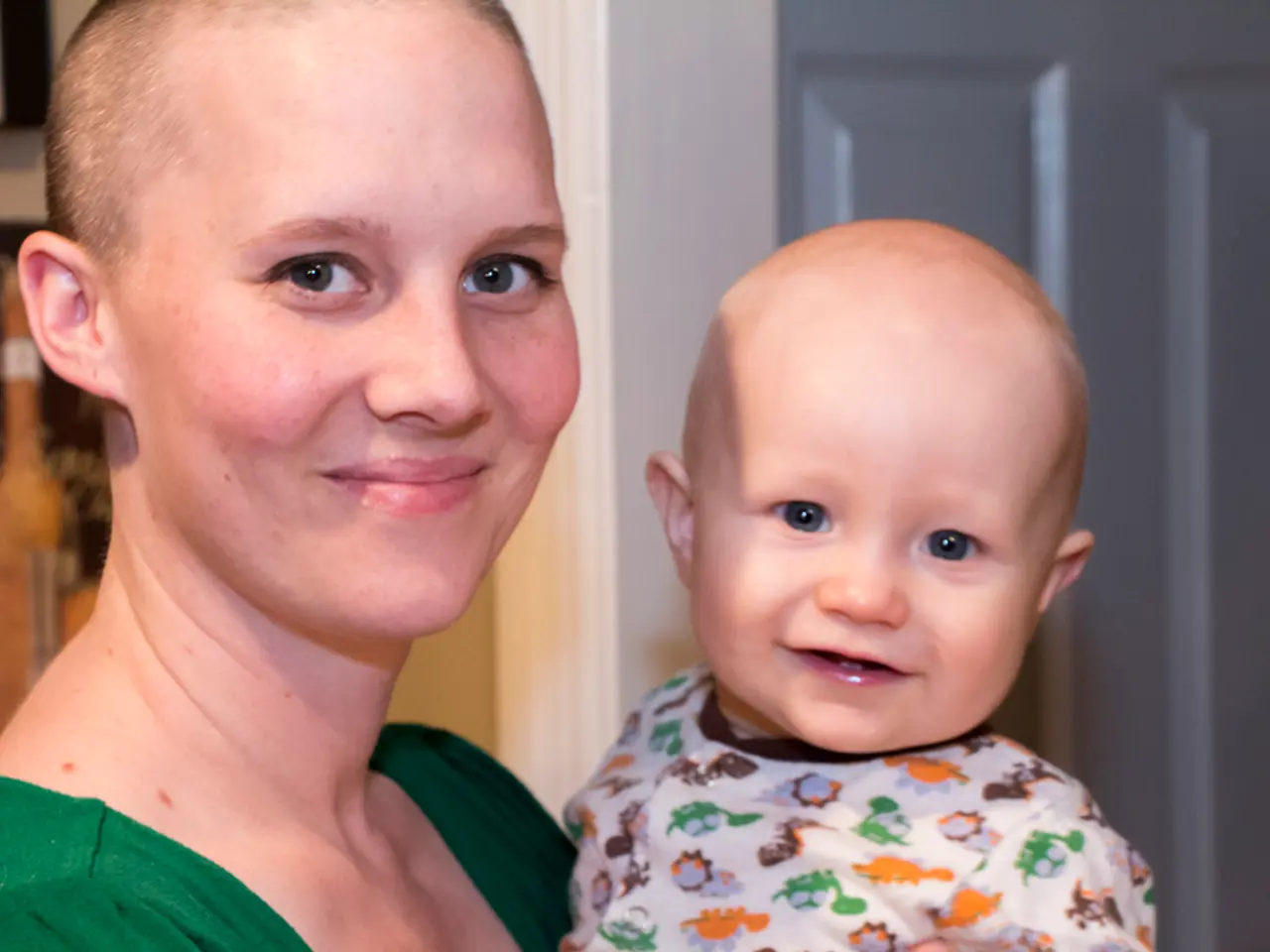Navigating Gender Dynamics: Contemporary Parenting Trends in Nigeria
=====================================================================================
Modern Nigerian parenting is undergoing a significant transformation, with a growing emphasis on gender equality. This shift is crucial for the healthy development of children, promoting open-mindedness and adaptability, and breaking the stereotype that men are only responsible for providing financially.
In traditional Nigerian societies, there is often a preference for sons over daughters, leading to different treatment and opportunities for children based on gender. However, education and the rise of gender equality and women's empowerment movements are contributing to a shift in these gender roles.
One of the contemporary challenges facing the balanced gender roles in parenting is limited paternal involvement. Fathers' participation in parenting education and active involvement in childcare is generally low, which can limit the effectiveness of parenting interventions. To address this issue, implementing programs that educate both parents on the importance of shared responsibilities can help shift cultural attitudes.
Another challenge is gendered caregiving roles, with women typically bearing the bulk of caregiving responsibilities. This creates an imbalance in household duties and contributes to marital dissatisfaction. Strengthening family support networks, similar to those in traditional Nigerian communities, can help alleviate the burden on individual parents.
Policy reforms also play a significant role in promoting balanced gender roles. Advocating for policies that support shared parenting responsibilities, such as family leave policies, can encourage more balanced gender roles.
Examples of Nigerian parents who have successfully balanced their gender roles include the Dike, Ibrahim, and Okonkwo families. These families demonstrate that modern parenting in Nigeria involves both parents taking equal responsibility in raising their children, challenging traditional gender roles.
Balancing gender roles in parenting brings numerous benefits, including improved parenting dynamics, a positive impact on children's development, equal distribution of household and childcare responsibilities, and promoting a healthy work-life balance for both parents.
The journey towards balanced gender roles in modern parenting in Nigeria faces challenges such as cultural and societal resistance, role conflict within relationships, and external pressures and judgments. However, engaging communities in discussions about gender equality and the benefits of shared parenting can foster a supportive environment for change.
In conclusion, the evolution of parenting in Nigeria is a dynamic process that reflects the changing landscape of traditional gender roles. The call to embrace gender equality in parenting is a call for individual growth and collective societal transformation in Nigeria. When parents share household and child-rearing responsibilities, it promotes gender equality within the family. The key to a brighter future lies in embracing gender equality in parenting, shaping the lives of our children, and contributing to the evolution of a more inclusive and progressive Nigerian society.
[1] Oyedeji, A. O., & Ogunleye, O. A. (2018). Gender bias in Nigerian society: A review. Journal of Social Sciences, 11(1), 1-12.
[2] Oladipo, A., & Adeyemi, O. (2016). Gender roles and family dynamics in Nigeria. Journal of Family and Community Studies, 19(1), 55-64.
[3] Adebayo, O., & Adebayo, A. (2017). The impact of paternity uncertainty on family relationships in Nigeria. Journal of Family Studies, 23(3), 409-418.
[4] Oyedele, A., & Adekunle, O. (2018). Fathers' participation in parenting education in Nigeria: A review. Journal of Education and Health, 6(1), 1-10.
[5] Oyedele, A., & Adekunle, O. (2019). The role of policy reforms in promoting gender equality in parenting in Nigeria. Journal of Gender Studies, 28(3), 347-360.
- Promoting gender equality in parenting is not just beneficial for individual child development, but it also triggers societal transformation, challenging traditional stereotypes.
- In today's modern Nigerian parenting landscape, fathers are increasingly prioritizing their engagement in education and shared responsibilities in childcare.
- Encouraging health-and-wellness and a science-based approach in parenting lifestyle can influence positive behavior changes in children, reinforcing the importance of a balanced upbringing.
- A family that equally distributes household and childcare responsibilities fosters a harmonious environment that supports children's overall development and promotes a healthier work-life balance for parents.
- Strengthening support networks within extended family and community can help to broaden the perspectives of modern parents, facilitating a more balanced approach towards child rearing.
- Advocating for policy reforms such as equal parental leave and shared parenting responsibilities can help to bring about a societal shift that encourages gender equality in childcare and strengthens family dynamics.
- Embracing gender equality in parenting goes beyond just balancing household and childcare responsibilities; it involves challenging cultural norms and fostering open-mindedness and adaptability in our kids.
- The journey towards balanced gender roles in parenting may face resistance and external pressures, but by engaging in meaningful discussions about the benefits of shared parenting, we can create a supportive environment for positive change.




